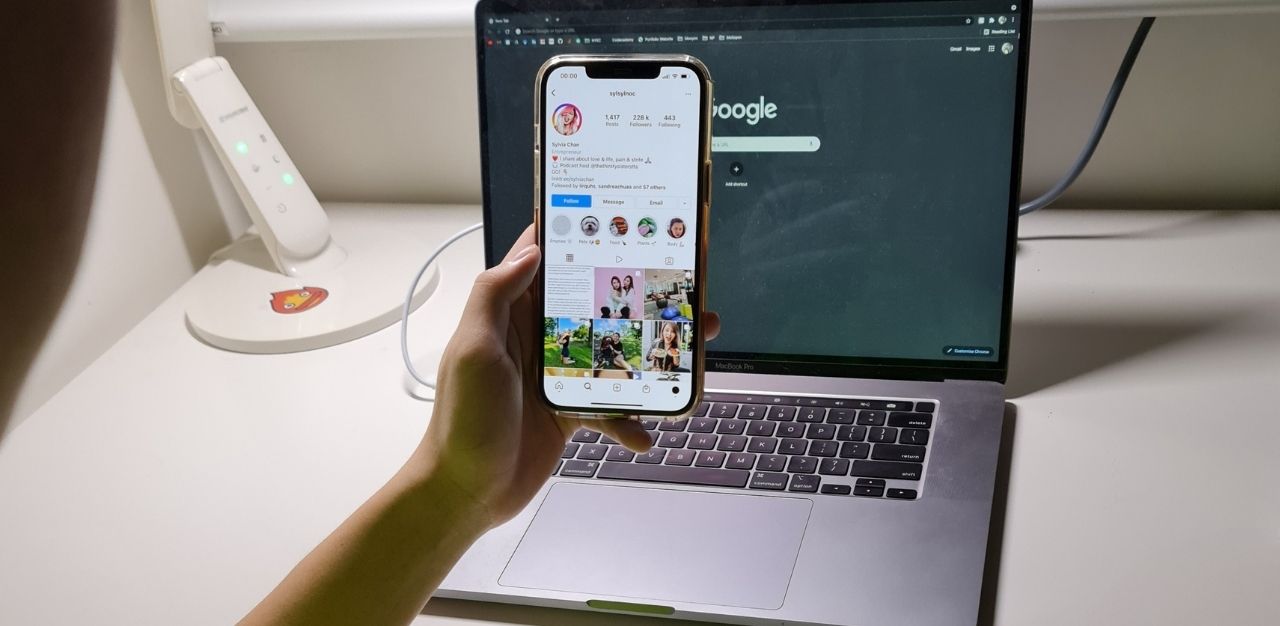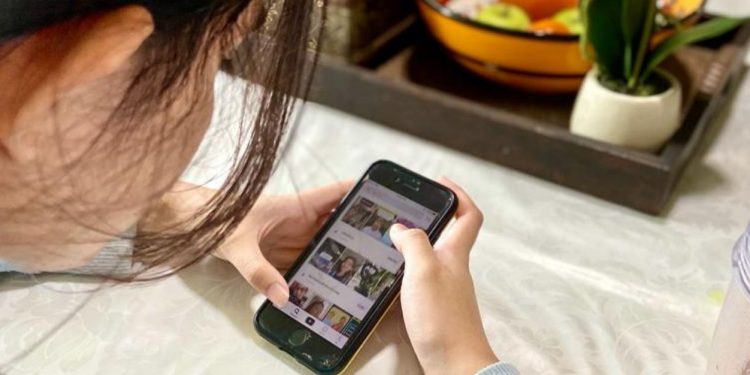The alarm screams.
You open your sleep-ladened eyelids and stretch towards the nightstand to reach for your phone to flick on Instagram (IG).
As you brush your teeth, you scroll through your Facebook newsfeed to catch up on what you had missed while you were asleep.
Breakfast is spent with your constant companion, TikTok and the cycle repeats throughout the day as you try to “one up” over your friends on social media with your latest photos or videos. You can’t wait for a break in work or school to check on your “like” scores. You tell yourself “just one post on IG” and get extremely lost in it for hours.
The last thing you see as you drift off to sleep is your favourite social media and dream of becoming the next big influencer.
If that is you, then you are definitely addicted to your devices and to social media.
Third highest internet penetration
According to Statista, Singapore has the third highest number of internet users in Southeast Asia. The research also finds that children get their first internet-connected devices when they are about eight years old, well under the global age of 10. This makes our children one of the youngest in the world to go online.
Another survey by Statista underscores the use of social media in Singapore. An estimated 3 in 5 users say they regularly visit a social media platform, with YouTube, WhatsApp and Facebook, leading the pack at more than 80 per cent penetration.

Threat to mental health
According to The Straits Times, mental health experts and social workers say such constant attention to social media may lead to feelings of inferiority or inadequacy. Majority of youths cannot help but compare themselves with peers on social media, says Mr Cho Ming Xiu, founder and executive director of non-profit mental advocacy Campus PSY. “The constant competition emphasised by social media channels and by their peers — especially when everyone is posting about good things — exacerbates competition, and young people find it stressful,” he tells the Singapore daily.
This is certainly the case among the handful of teens TheHomeGround Asia spoke to. Seventeen-year-old Nisa Roszaini, for one, feels some of the people on social media have better lives than her. However, she is not pressured to buy more things “to be just like them”, she says. Thirteen-year-old Megan, who declines to give her real name, says she envies the people she follows online and is aware it is not healthy.
Big Tech under fire
In recent weeks, social media giants TikTok, YouTube and Snap have been put in the spotlight following a revelation that Facebook has put profits over people by a whistleblower. She has accused CEO Mark Zuckerberg of pushing for higher profits while being cavalier about user safety. TikTok, YouTube and Snap, the parent company of Snapchat, sought to distance themselves from Facebook saying their products are different from the tech giant, reported CNET.
The teens who spoke to TheHomeGround Asia typically spend between two and eight hours a day on social media. Fourteen-year-old Qamara Mohd Zabid says she spends up to eight hours on weekdays and between 10 and 11 hours on weekends. Her 16-year-old brother Abdul Matin Mohd Zabid, on the other hand, spends only 10 to 20 minutes a day catching up on memes and texts.
The teens themselves noted that time spent on social media has gone up considerably for most of them during the pandemic. This was exacerbated by Home-based Learning, online assignments, school group chats and online tuition that took over face-to-face learning during the lockdown, says thirteen-year-old David Ooi. His screen time shot up to 10 hours from just two to three before Covid-19.
Pandemic-fuelled social media
The ever-changing rules during the pandemic has led to a different way of consuming social media, says the founder of CyberCognizanz, Dr Anuradha Rao, in a CNA opinion piece. She shares a Kantar study on global media habits which found that millions of people have turned to social media to connect with family, friends and colleagues, and to keep up with news on the pandemic.
Dr Rao claims the way social media consumption has shifted from a narcissistic use to a public service-oriented one. This is seen in myriad ways such as sharing information from governments; offering help, support and (free) resources; sharing messages of solidarity and hope; and expressing concern for and helping the less fortunate.
Locally, social initiatives such as Hawkers United were set up to help hawkers affected by the dine-in restrictions. Online charity, Mind The Gap raised more than S$1 million to help families in Singapore get over the pandemic crunch. Singaporeans had also the option to donate their SingapoRediscover vouchers to migrant workers who were out of work.
Opening doors during lockdowns
Even 17-year-old Wardell (not his real name), an enterprising youth, created study sessions using Discord to motivate other teens while they work on individual projects. “It works like a charm since we are free to enter “deep focus” mode by muting ourselves and “social mode” when we chat during breaks,” he says.

However, social media can still continue to be toxic as many people broke the rules during the Circuit Breaker period for “street cred” just to show how much fun they were still having despite the lockdown.
Xavier Lim, 20, also says social media use has led him to feel “cooped up” and inadequate. “When I spend time (on social media) late at night, I see people living the life I’ve always wanted, and it makes me feel like I could be doing more than what I am currently doing. I’ll scroll through my feeds until I fall asleep and repeat it all the following night,” he says.
All of the young people we had spoken to say unequivocally they miss their friends when schools shut. Turning to social media gives them opportunities to bond, albeit virtually. They gather over Discord to binge-watch K-dramas or anime or hold virtual Netflix parties. They would also reach out to friends when they spot something amiss and offer a listening ear or a shoulder to cry on.
Mindful of the dangers of extended time spent on social media, teens also try to stop each other if they notice someone has not logged out after prolonged periods.
Real connections
The teens also feel that some of the social media accounts such as @gochuzhe and @danlok have become more authentic and engaging on a real level. Eighteen-year-old Solana Mendoza says she feels more engaged on social media and it has given her an emotional outlet to relieve stress during the pandemic.

She creates content on her dog account @miso_special and conducts giveaways sponsored by small dog businesses. Xavier also says he has learned a lot about start-ups through social accounts during the pandemic. He hopes to grow his own account by sharing his academic or entrepreneurial successes in the future.
“Through social media, I’ve learned to discover myself and find what is right for me — and plan for my future,” he says.
Join the conversations on TheHomeGround Asia’s Facebook and Instagram, and get the latest updates via Telegram.














